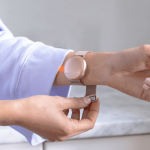News
Vodafone partners with Wales women’s rugby team to track periods and performance
Wales Women will be using the tracking app during the Six Nations Championship

Vodafone has teamed up with the Wales women’s Rugby team to track and research how the menstrual cycle impacts performance, wellbeing and recovery.
Vodafone, who is a founding principal partner of Wales Women’s and Girls rugby, has added menstrual cycle tracking to their PLAYER.Connect platform, which aggregates data from athletes’ wearable devices.
The platform gathers data on players’ performance, menstrual cycle phases and mental and physical wellbeing, by combining data from wearable devices such as GPS trackers in real time.
This is in addition to input from the players themselves, via daily ‘morning monitoring’ – a series of questions answered by the players on arrival at training.
The Wales Women’s team is the first female team to try out the tracking feature.
“Despite 93 per cent of female rugby players reporting menstrual cycle-related symptoms and 67 per cent believing these severely impair their performances, there is limited guidance available on how players can best manage this,” says Alex Skelton, PLAYER.Connect head of performance.
“Being able to directly link each athlete’s menstrual cycle stage to their performance data provides a massive advantage in how we can begin to tackle this issue, by allowing coaches and analysts to move away from ‘catch-all’ solutions and provide genuine tailoring of diet, training and preparation for each individual player.
“Combined with a long-term research study using our PLAYER.Connect data, this will allow us to make huge strides in how we help female athletes of all levels better understand and manage their cycle.”

Rugby player Cerys Hale
Joanna Perkins, Welsh Rugby Union’s national women’s physiotherapist, says the platform is already having a significant impact on the players’ training and preparation.
“PLAYER.Connect gives us information in real time, and is far more user friendly,” she explains.
“That means we can quickly implement strategies, inform change, avoid injuries, and help players reach their peak preparation ahead of each fixture.”
Wales Women prop, Cerys Hale, says the PLAYER.Connect technology has improved her performance this season.
“It’s given me a greater awareness of things I need to do away from the field, so for example I can monitor any soreness, be more aware of how I’m recovering and then look at what I can do before training to help manage injury prevention.
“This includes tips on how I can change my nutrition during each of the phases of my cycle, how I can reduce my symptoms, and it’s just given me more confidence that I’m putting my body in the right place to be able to perform.”
Vodafone is also working with Cardiff Metropolitan University on a research study to further investigate the impact of the menstrual cycle by using the data gathered from PLAYER.Connect.
The ambition, the company says, is to provide information that can help all female athletes of all levels better manage their performance and wellbeing in the future.
“We are committed to using our network to find innovative ways to support the growth of women’s rugby in the UK from the grassroots up,” says Vodafone’s UK chief commercial officer, Max Taylor.
“We are only in the early stages of a long partnership with the WRU and we’re looking forward to working with the team in the coming years to deliver on our ambitious plans.”
News
NHS health checks to include menopause questions for the first time
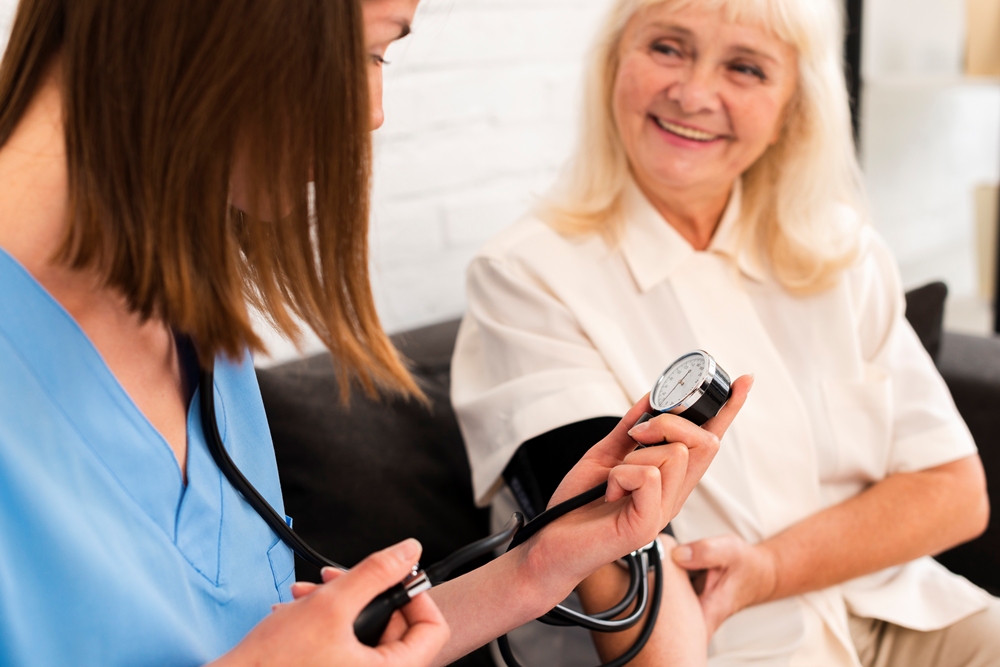
NHS health checks will include questions about menopause for the first time, a move ministers say could help up to five million women in England.
The Department of Health and Social Care said the new questions, to be developed over the coming months, could be introduced from 2026.
Adults aged 40 to 74 without long-term conditions are eligible for these free checks every five years.
The checks currently screen for heart and kidney disease, type 2 diabetes, dementia and stroke risks.
Adding menopause questions marks what health secretary Wes Streeting described as giving women “the visibility and support they have long been asking for.”
Streeting said: “Women have been suffering in silence for far too long.
“They are left to navigate menopause alone, with very little support – all because of an outdated health system that fails to acknowledge how serious it can be.
“No one should have to grit their teeth and just get on with what can be debilitating symptoms or be told that it’s simply part of life.”
Around three-quarters of women experience symptoms such as hot flushes, night sweats, depression and sleep problems.
One in four describe their symptoms as severe.
National Institute for Health and Care Excellence guidance recommends hormone replacement therapy (HRT) as the first-line treatment. HRT can also help maintain muscle strength and reduce the risk of osteoporosis, where bones become weak and brittle.
Despite this, many women say they are not listened to or offered adequate support.
Dr Sue Mann, NHS England’s national clinical director for women’s health, said: “By tailoring NHS health checks to include questions around menopause, we hope more women will get the support they need to manage their symptoms.”
Experts welcomed the move but cautioned that access inequalities remain.
Professor Ranee Thakar, president of the Royal College of Obstetricians and Gynaecologists, called it “fantastic news” that could help reduce stigma, but said implementation would be key.
“For this change to have maximum positive impact we’d like to see a real focus on ensuring women from diverse ethnic communities and socially deprived areas are supported to access health checks, and excellent menopause training for healthcare assistants providing them,” she said.
Kate Muir, author of Everything You Need to Know About the Menopause (But Were Too Afraid to Ask), said: “This is desperately needed, particularly to provide evidence-based information for women on the benefits of HRT. GPs’ appointments are a perfect way to get knowledge into all communities.
“We know from NHS statistics that 23 per cent of white menopausal women are on HRT, but only 5 per cent of black and 6 per cent of Asian women.
“This may open doors.”
Janet Lindsay, chief executive of Wellbeing of Women, added: “Women and people from marginalised communities are less likely to know about or attend these [health checks], and progress on menopause support cannot leave them behind.
“Healthcare professionals must work with grassroots organisations in these communities to ensure those facing additional barriers receive the tailored care they need.”
Mental health
Timing is everything: What AI need to learn about HRT and brain health
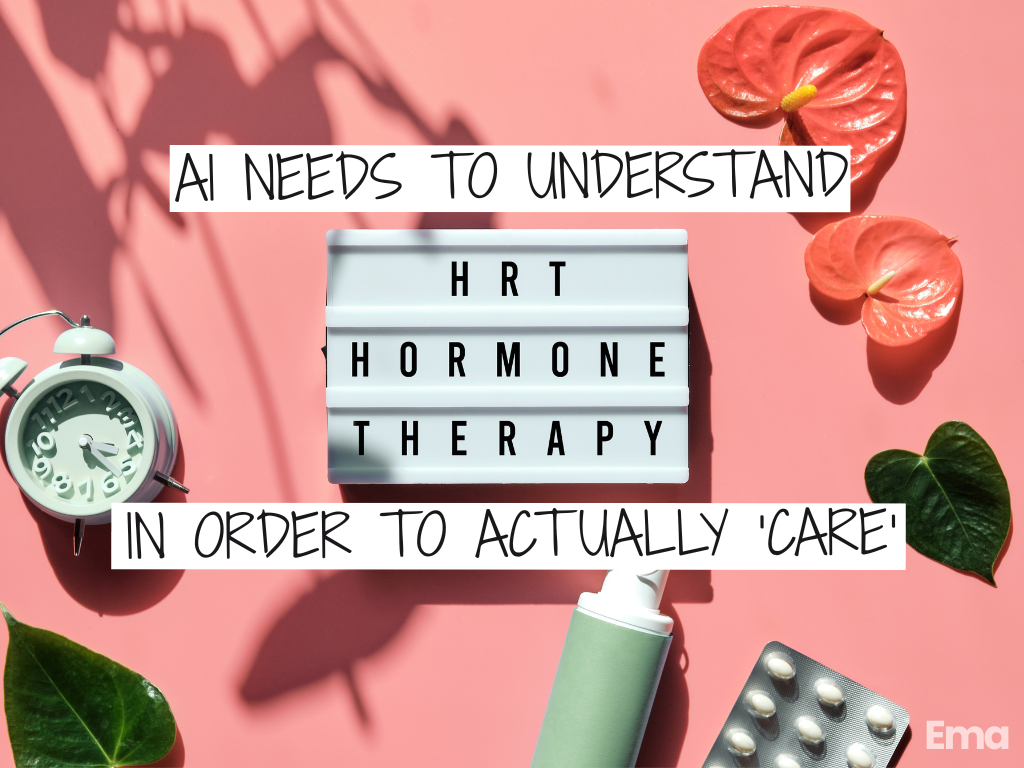
By Morgan Rose, CNM, WHNP-BC, and Dr Kudesia, triple board-certified in Reproductive Endocrinology & Infertility (REI), Obstetrics & Gynecology, and Lifestyle Medicine
The timing of when women start hormone replacement therapy (HRT) may matter more than we ever understood.
The “critical window” for starting HRT isn’t just relevant to brain health; timing has also been shown to shape cardiovascular outcomes.
Early analyses of the landmark WHI trial missed this nuance, including women long past menopause and obscuring benefits seen in those who begin therapy sooner.
Recent research presented at the American Neurological Association Annual Meeting found that women who began HRT within five years of menopause had a 32 per cent lower risk of developing Alzheimer’s disease.
Yet those who started HRT more than five years after menopause showed higher levels of tau proteins, a hallmark of Alzheimer’s, in their brains.
This “critical window” concept challenges the one-size-fits-all model of menopause care. It suggests that when we start HRT, it can be just as important as whether we start it.
Researchers at Mass General Brigham found similar patterns: women who began HRT near the onset of menopause did not show increased Alzheimer’s risk, while those who experienced early menopause with longer lifetime estrogen deprivation faced a higher risk overall.
Why Timing Matters
Women face roughly a 1 in 5 lifetime risk of Alzheimer’s disease, compared to 1 in 10 for men of the same age. The sharp drop in estrogen during menopause may help explain that gap.
Estrogen supports energy production, blood flow, and inflammation control in the brain functions that wane as levels decline.
The data suggest that initiating HRT earlier (around perimenopause or early menopause) may preserve some of these neuroprotective effects, while starting too late could heighten risk once neurodegenerative changes have already begun.
One meta-analysis showed that HRT begun soon after menopause reduced Alzheimer’s risk by over 40 per cent compared to non-users, while starting after age 60 doubled the risk.
These findings don’t make HRT a blanket prescription; they make it a precision intervention.
The Clinical Nuances AI Must Understand
If AI is going to support menopause care safely and intelligently, it needs to understand the reasons behind the actions.
1. Timing Is a Risk Modifier
“Time since menopause” is not just a demographic; it’s a clinical determinant.
AI systems must understand that the same therapy can carry opposite implications depending on when it’s initiated.
2. HRT Is Not Monolithic
There are multiple formulations, routes, and combinations.
For women who still have a uterus, adding progesterone helps protect the uterine lining and lowers the risk of endometrial cancer that can occur with estrogen-only therapy.
Topical estrogen, which has much lower absorption into the bloodstream, may be appropriate for perimenopausal women who are still having periods or postmenopausal women with a uterus who need targeted relief of vaginal or urinary symptoms.
For example:
- Estrogen-alone therapy can raise the risk of endometrial cancer and is typically not recommended for women with a uterus.
- Topical estrogen, with much lower systemic absorption, may be appropriate for perimenopausal women still having periods.
These distinctions must be explicitly encoded into AI frameworks to avoid oversimplified or unsafe recommendations.
3. Safety Requires Scope and Referral
Complex topics like HRT timing and neuroprotection should always prompt an automatic follow-up:
“Please consult a menopause specialist or clinician (such as one credentialed through the North American Menopause Society) to discuss the risks, benefits, and best options for you.”
AI logic must mirror how clinicians practice by inviting deeper discussion, not replacing it.
From Symptoms to Systems Thinking
We need to move beyond viewing menopause as a set of symptoms to manage, and instead see it as a neurological and metabolic inflection point in women’s lives.
That means:
- Bringing conversations about HRT earlier, during perimenopause, when neuroprotective benefits may still be possible.
- Designing AI systems that recognise context and chronology, not just keywords.
- Making personalised, evidence-based menopause guidance accessible to every woman by cutting through misinformation and connecting her to trusted care.
The Bigger Picture
For too long, women’s midlife health has been under-researched and under-resourced. The result is a data gap, which can quickly become a bias when encoded into AI.
If we want women’s health AI to truly care, it must be trained on data that understands the complexity of hormonal transitions, not just the vocabulary of them.
Because the difference between “now” and “five years from now” can determine whether a woman ages with clarity or confusion.
AI should know that.
And soon, it will.
Dr Kudesia is nationally recognised for her expertise in fertility awareness, lifestyle, and culinary approaches to reproductive health, and her advocacy for reproductive rights.
Ageing
Women better protected against early Parkinson’s neurodegeneration, study finds
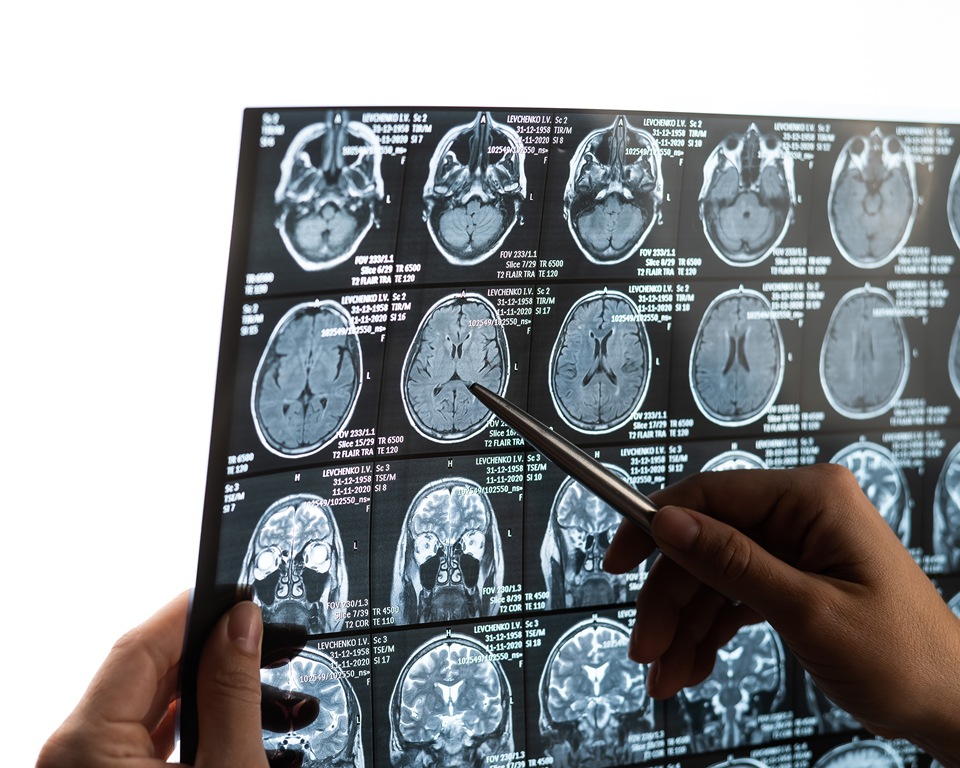
Women with an early precursor to Parkinson’s disease show much less brain shrinkage than men, despite similar disease severity, new research shows.
The discovery could help scientists explore how hormones might one day be used to treat the neurodegenerative condition.
The findings are based on data from nearly 700 participants across nine international research centres.
The study focused on isolated REM sleep behaviour disorder — a condition in which people physically act out their dreams.
It is considered the most reliable early warning sign of diseases caused by toxic protein build-up in the brain.
More than 70 per cent of those affected later develop Parkinson’s disease, Lewy body dementia or multiple system atrophy, which affects several body systems.
Researchers from Université de Montréal analysed 888 brain scans from centres in Canada, the Czech Republic, the UK, France, Australia, Denmark and Italy.
After quality checks, 687 participants were included: 343 patients with the sleep disorder and 344 healthy controls.
The results revealed clear sex-based differences.
While 37 per cent of the cortical areas — the brain’s outer layer responsible for higher functions — showed thinning in men, only one per cent of regions were affected in women.
This difference remained even though participants were of similar age (around 67) and had comparable clinical profiles.
Marie Filiatrault is first author of the study and a doctoral student at Université de Montréal.
The researcher said: “Men show much more extensive and severe cortical thinning — the outer layer of the brain that controls our higher functions — than women, particularly in areas linked to movement, sensation, vision and spatial orientation.”
To understand the protective effect, researchers compared brain images with gene activity in different regions, measured in healthy brains after death.
They found that the less-affected areas in women showed higher expression of genes related to oestrogen function, particularly ESRRG and ESRRA, which produce oestrogen-related hormone receptors.
The ESRRG gene was especially notable, showing greater activity in brain tissue than elsewhere in the body.
These receptors play key roles in mitochondrial function — the cell’s energy production system — and in the survival of dopamine-producing neurons, the cells that die in Parkinson’s disease.
Shady Rahayel is professor at Université de Montréal’s Faculty of Medicine and lead author of the study.
Rahayel said: “This sleep disorder offers a unique window of opportunity to study the mechanisms of neurodegeneration before major motor or cognitive symptoms appear.
“Our results suggest that certain brain areas in women with isolated REM sleep behaviour disorder are better protected than those in men, likely through the action of oestrogens.”
The team chose to study this precursor condition because it allows observation of brain protection mechanisms before major motor symptoms develop.
Although only 25 to 40 per cent of people with Parkinson’s experience REM sleep behaviour disorder, studying this early stage gives insight into how the brain resists damage when it is still limited.
Previous studies have shown that women with established Parkinson’s disease tend to experience slower progression than men, pointing to similar protective effects.
The findings could shape future research and treatment development.
The authors recommend separating men and women in clinical trials, which could improve statistical accuracy and reduce the number of participants required.
The biological mechanisms identified — particularly those linked to the ESRRG gene — could also become potential therapeutic targets.
Early laboratory research suggests that increasing ESRRG activity may protect dopamine-producing neurons from the toxic effects of alpha-synuclein, a protein that builds up abnormally in the brains of people with Parkinson’s.
“This study brings us closer to precision medicine, where treatments could be tailored not only to the disease but also to individual biological characteristics, including sex,” said Rahayel.
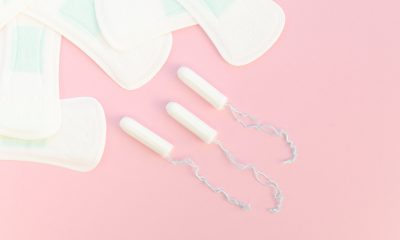
 News20 hours ago
News20 hours agoDozens of women report suffering painful burns after using Always sanitary towels
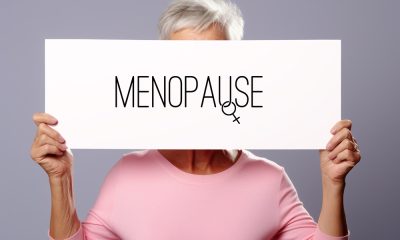
 Menopause2 weeks ago
Menopause2 weeks agoFDA plans to revise black box warning on menopause hormone therapies

 News2 weeks ago
News2 weeks agoAI-powered women’s health companion Nexus launches in UK

 Fertility2 weeks ago
Fertility2 weeks agoScientists turn human skin cells into eggs in IVF breakthrough

 News7 days ago
News7 days agoWomen’s health innovations recognised in TIME’s Best Inventions 2025

 News2 weeks ago
News2 weeks agoDaily pill could delay menopause ‘by years,’ study finds

 News2 weeks ago
News2 weeks agoAncient herb to modern must-have: Why ashwagandha is capturing UK women’s attention
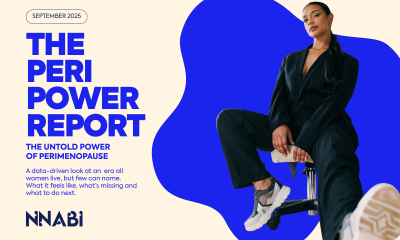
 Menopause3 weeks ago
Menopause3 weeks agoNew report exposes perimenopause as biggest blind spot in women’s health



























